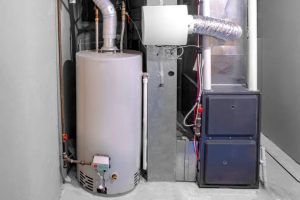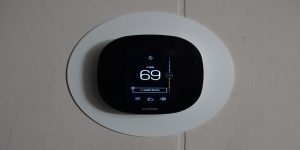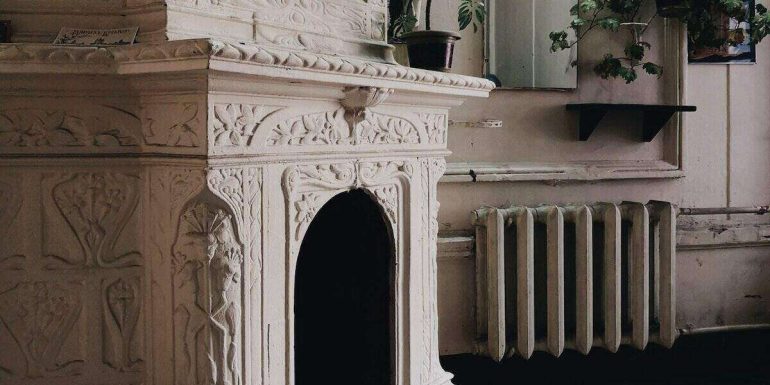It’s not uncommon if you want to replace your old furnace. After all, newer models are more energy efficient and will probably be cheaper to maintain compared to older models.
So how do you know if it’s time to replace your old furnace?
The first thing to consider is the age of your furnace. Let’s look at this and other factors in detail for furnace maintenance.
Your Furnace is Old

As we’ve mentioned above, the age of your furnace is an important consideration when you’re figuring out whether to get a replacement. One thing you need to understand is that furnaces are built to last, but it’s still a good idea to replace yours after 15 years.
What if my furnace is in its best condition? Well, 15 years is a lot of time in any industry. Within that period, manufacturers will have produced new models that are incredibly efficient, and your unit is probably struggling to heat a small area of your home.
Whether you replace your old furnace at CM Heating for example, or do it yourself, replacing the unit will bring many benefits. A new furnace is more efficient and produces less carbon dioxide than older models.
It will also be unlikely to break down often, so you’ll have fewer or no problems with heating your home. You will even save money on your energy bills.
Higher Heating Bill
If you’re noticing that your heating bill is higher than it used to be, it may be time to replace your old furnace. The problem could be:
- You might be turning up the heat more than usual.
- Your utility bills could be increasing because of weather conditions — cold weather means higher heating demand.
- The energy efficiency of your furnace has decreased due to wear and tear, so it’s working harder to heat a small space, which translates to a higher electricity bill.
You’re Tired of Repairs
A furnace that breaks down regularly cannot be efficient enough for your home. Worse still, you’ll also need to spend a lot of money every time you call in a technician to repair the unit.
That’s why experts recommend getting a new unit every few years—it may seem like an investment upfront but will save you money in the long run by avoiding costly repairs.
The Furnace is Producing Weird Smells

While most furnaces produce the smell of gas when running, some strange smells could indicate something is not working correctly.
Here are five common smells that might be signs of problems in your heating system:
- Musty smell – The cause of this odor could be something as simple as a fungus that has grown in the ductwork. This can emanate from poor airflow or even dirty filters, so if you see any signs of fungi, consider having them cleaned professionally before they cause more problems.
- Rotten Eggs – it’s not something you’d want to smell, but if your furnace smells like rotten eggs, it can be a sign of a serious issue with your furnace. The most common cause of the pungent smell is a gas leak. To be safe, switch off the furnace and contact an HVAC technician who will advise you on whether you need to replace parts or install a new furnace.
- Burning plastic – a burning plastic smell can be a sign that your furnace is overheating. If you notice this odor and it’s accompanied by some soot, call a professional immediately. The smell can cause respiratory infections if not addressed quickly.
- Burning Dust – If you smell burning dust in your furnace, it might be time to clean out the filters. Dust can build up on them and cause them to clog up, which is why you should check them regularly. You should also make sure that there aren’t any holes or cracks in your furnace that could allow dust into the system.
- Metal smell – means your furnace is overheating because it’s overworking. If the system cannot perform simple tasks without producing a metallic smell, then you know it has outlived its usefulness and therefore needs to be replaced.
The Furnace is Short-Cycling or Takes a Long Time to Start
Most furnaces take at most five minutes to warm up after you have started the thermostat. If your unit is taking 10 minutes to start, that’s too long; you need to replace it with a faster one.
But before replacement, you need to check the health of the wires, switches, and sensors. The same applies when the furnace can’t turn off.
Short-cycling is when the furnace keeps turning on and off repeatedly (don’t confuse this with the routine breaks a unit takes between heating sessions).
Causes for short-cycling are many, but the most common ones are deteriorating thermostats or heat exchangers, dirty filters, and clogged flue.
The furnace might also be too large for your home. So it heats your rooms quickly before turning off to ensure consistent heating. The easiest way to fix this problem is by getting a new unit for the size of your home.
Inadequate or Uneven Heating

If you are getting inadequate or uneven heating in some or all of your rooms, the air ducts might be leaking air. Other possible culprits include:
- Faulty zone controls – zone controls allow you to set different temperatures for different rooms. If these controls are not working properly. You’ll get less than comfortable temperatures, and that’s the best time to start researching high-quality furnaces.
- Faulty thermostat – the thermostat is the component that tells your furnace when and how to heat your home. If it’s faulty, it will relay the wrong signals and you will end up with insufficient heating. If after tuneup the thermostat isn’t working smoothly, consider replacing the furnace.
- Dying furnace – like other appliances, furnaces lose their efficiency and ability to heat evenly as they age. The quick fix to this problem is replacing your heater with a new one.
Poor Air Quality
There’s no point in having a furnace that circulates dirty air throughout your home. Poor air quality is a sign that your furnace is no longer working properly. And you notice it when you inhale dust, mold, and allergens.
The problem with air pollutants is that they expose you, your family, and your guests to the risk of asthma, allergies, and other respiratory diseases. Remedy? Plan to buy a new furnace soon.
Noise
There are many furnace noises you can hear in your home. While some of them are normal, others are quite annoying and could indicate imminent danger. Look out for these noises:
- Humming – this is a low-pitched sound from the blower motor. Normally, humming means the blower motor is dirty or unlubricated. If the sound is too loud, that could be a sign you need to replace your old furnace because the blower motor is dying.
- Rattling or banging – as you can imagine, these two are signs of old age. If the furnace is new and you hear a rattling or banging sound. You need to tighten the screws on the panel door or check whether there’s carbon monoxide emission.
Conclusion
While buying a new furnace might seem like a costly investment, it can be worth it if you notice any of the above signs. A new furnace will keep your family safe from health issues, while also making the home more comfortable.
It will also save you money on energy bills and repairs. Plus, you’ll have peace of mind knowing your furnace is working efficiently and smoothly.




